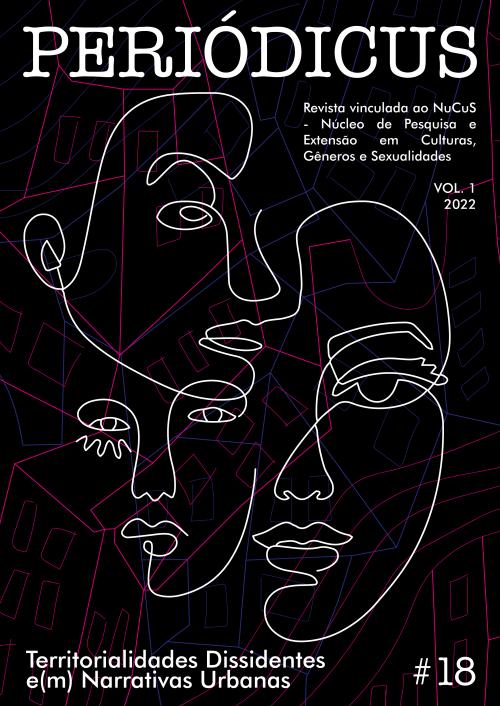“Curto uma pegação no sigilo”
o Grindr como território de subjetivações dos espaços de desejo
DOI:
https://doi.org/10.9771/peri.v1i18.49899Resumo
Este artigo propõe reflexões e provocações acerca do aplicativo de relacionamentos Grindr, a fim de pensá-lo como um território possibilitador das mais diversas configurações assumidas por identidades dissidentes à cisheteronorma, permitindo um aprofundamento nas discussões em torno dos reflexos causados pelos processos de subjetivação que partem de uma perspectiva dicotômica e cisheterocentrada. Assim, partimos de um referencial teórico convergente com o objeto de análise e, posteriormente, seu desenvolvimento é orientado pela análise de conteúdo, em que foram coletados os dados de 25 perfis passíveis de análise. Ao final, percebe-se que o aplicativo se apresenta como um território pornotópico, haja vista a justaposição de distintos espaços – identidades, normas – que são incompatíveis. Tal divergência culmina no surgimento de três principais categorias: pornotopia e manutenção da cisheteronorma; pornotopia e invisibilização das violências; e pornotopia e sigilo.
Downloads
Downloads
Publicado
Como Citar
Edição
Seção
Licença
Copyright (c) 2022 William Roslindo Paranhos, Claudia Maria Inácio Costa

Este trabalho está licenciado sob uma licença Creative Commons Attribution-NonCommercial 4.0 International License.
Autores que publicam nesta revista concordam com os seguintes termos:
Autores mantêm os direitos autorais e concedem à revista o direito de primeira publicação, com o trabalho simultaneamente licenciado sob Licença Creative Commons Attribution Noncommercial que permite o compartilhamento do trabalho com reconhecimento da autoria e publicação inicial nesta revista, sendo vedado o uso com fins comerciais.
Autores têm autorização para assumir contratos adicionais separadamente, para distribuição não-exclusiva da versão do trabalho publicada nesta revista (ex.: publicar em repositório institucional ou como capítulo de livro), com reconhecimento de autoria e publicação inicial nesta revista.
Autores têm permissão e são estimulados a publicar e distribuir seu trabalho online (ex.: em repositórios institucionais ou na sua página pessoal) a qualquer ponto antes ou durante o processo editorial, já que isso pode gerar alterações produtivas, bem como aumentar o impacto e a citação do trabalho publicado (Veja O Efeito do Acesso Livre).








